Tuesday, March 1
| 10:30–11:30 a.m. | "Humming Birds of the Pacific Northwest," Dean Wentworth, Ford 122 Dean Wentworth has been the Botanical Garden and Greenhouse Curator at Willamette University since 1999. Dean will discuss his involvement with the Martha Springer Botanical Garden, the Japanese Zen Garden, and other garden areas on the Willamette campus. Dean is especially interested in Hummingbird gardens. Dean is an avid photographer and will be showing pictures he has taken of Pacific Northwest Hummingbirds.
|
| 11:30 a.m.–12:30 p.m. | Video Lecture "A Skeptic's Guide to American History: The Constitution Did Not Create a Democracy," [Bob Muir], Ford 122 Despite our talk of "original intent," the Founding Fathers did not plan to create the political system we have today, a democratic republic based on two national and permanent political parties. However, recognizing the inevitability of change, they did provide for amendment to the constitution. |
| 1:30 – 3:30 p.m. | "Art Restoration," Jonathan Bucci and Tom Fuller [Sharon Wright], Ford 122 Objects Conservator Tom Fuller and Hallie Ford Museum of Art Collection Curator Jonathan Bucci will discuss a wide range of conservation treatments that have been conducted on artworks from the Hallie Ford Museum of Art's collection over the past 10 years. There will be examples of both organic and inorganic materials being treated, accompanied with an explanation of why, how, and for what purpose conservation was pursued for these objects. Conservation is an integral part of collection management. This lecture will also address how conservators and curators work together to determine the best treatment for specific objects. In addition, ICL members are encouraged to bring in small, portable objects and artworks that they are interested in having a conservator or curator look at for assessment on cleaning, repair or identification.
|
Thursday, March 3
| 10:30 a.m.–12:30 p.m. | "Caribbean Migrants Living Transnational Lives in Canada: 1968-2015," Dwaine Plaza, [Mark Kasoff], Ford 122 More than a half-million people living in Canada trace their origins to the Caribbean. Many were born in the Caribbean and migrated to Canada in the period from the mid-1960s to the present following fundamental changes to Canadian immigration rules. The Caribbean immigrants and their descendants live overwhelmingly in Canada’s largest cities (Toronto, Montreal, Calgary and Winnipeg). Canadians of Caribbean background are quite diverse; they originate from different islands, ethnic groups, and cultures within the Caribbean region. Despite this diversity, they form a cultural and social community based on their identification with the music, history, traditions, and achievements of people from the region and their participation in Caribbean community organizations, cultural events, churches, and temples. The Caribbean community in Canada is clearly transnational, drawing on strong links to Caribbean communities in other countries (United States, Great Britain, and France). The Caribbean community in Canada takes on the full scope of what we understand a transnational community to be: it is widely and deeply linked to Caribbean communities elsewhere and feels part of them; it is established and connected in Canada; and it is one of the many immigrant and cultural communities in Canada that transform the society. This presentation provides a socio-historical overview of the Caribbean migration to Canada focusing specifically on Toronto.
|
| 1:30 – 3:30 p.m. | "Wearing a Wig in Church," David Gutterman [Tom Hibbard], Ford 122 The religious landscape of the United States is today marked by great volatility. This dynamism is most evident in the steady decline in mainline Protestant congregations, the diminishment of broad devotion within the Catholic Church, and the remarkable growth of Religious Independents. These changes reflect a broad individualization of religious faith and presage the possibility of significant political transformation in a nation that has long been perceived as having "the soul of a church." In this presentation, I will discuss this religious volatility in the United States–and then focus on the particular status of the Catholic Church in the United States.
David Gutterman is Associate Professor, Department of Politics and Associate Director, Center for Religion, Law and Democracy at Willamette University. In 1993 David received a Masters from the Department of Religion at Duke University in North Carolina. His theses included: “Engendering Courage: The Path to Salvation in Early Christian Asceticism” and “Taking on Masculinity: Sexuality, Gender and Cultural Performance.” David graduated cum laude with a Bachelor’s Degree from Duke in 1990 from the Department of Religion, with a focus upon Ethics. David received his Ph.D. from the Department of Political Science at the State University of New Jersey in 2000. His dissertation was “Prophetic Politics in Pluralist Land: Christian Social Movements and the Challenge of Democracy." Since attaining his Ph.D. his professional history includes two spans of time at WU as Assistant Professor in the Dept. of Politics; Assistant Professor, Dept. of Political Science at Linfield College; and Instructor in the Department of Political Science at Rutgers University. David has received many honors and awards and has published numerous books and articles. In addition he has participated in many Lectures and Conferences by invitation. Other professional activities include a radio interview by NPR; Manuscript Reviewer, and Consultant. The list of his community service is long and covers a number of advisory boards; executive boards; committees and special projects related to his field of interest. His Professional Associations include the American (and also the Western) Political Science Associations and the Association of Political Thought. He teaches: • Politics 203 - Themes in Political Theory |
Tuesday, March 8
| 10:30 a.m.–12:30 p.m. | "Born on the Battlefield: The Red Cross Story Then and Now," Brian Fenderson [Franca Hernandez], Ford 122 The American Red Cross is just one of over 180 Red Cross and Red Crescent societies found around the world. A three-time winner of the Nobel Peace Prize, the Red Cross has a fascinating history and during this presentation, local Red Cross volunteer, Brian Fenderson, will share the story of the founding of the international movement, as well as the ever-evolving story of the American Red Cross. In this presentation, participants will learn about the four main functions of the American Red Cross, the seven guiding principles of the organization, its successes and the challenges it faces today. An emphasis will be placed on what the Red Cross does in the Northwest Region and locally. The presentation will conclude with information on preparing one’s home and family for any number of disasters that can strike in this region.
|
| 1:30 – 3:30 p.m. | Art Potpourri [Sharon Wright], Ford 122 Participants are: Bob Muir, Bill Foster, Mark Kasoff, Jinx Brandt, Lester Reed and Hans Vander Weyden. |
Thursday, March 10
| 10:30 a.m.–11:30 a.m. | Language Video: "Language Death–Prognosis," John McWhorter [Jinx Brandt], Ford 122
Our ICL host is Anne Bowden. |
| 11:30–12:30 p.m. | "Music Potpourri," Solveig Holmquist, Ford 122 ICL Presenters, Jim McDonald, Eunice Porter and Paul Rice, will present some of their favorite music. |
| 1:30 – 3:30 p.m. | "The Oregon State Hospital: How and Why People Are Committed," Micky Logan and Guy Forson [Jinx Brandt], Ford 122 This presentation will be given by Oregon State Hospital Legal Affairs Director Micky Logan and Recreational Therapist Guy Forsom. Mickey Logan will explain how and why people are committed to OSH. Ms. Logan will give an overview of the different types of patient commitments and how those commitments impact patients’ options. The presentation will include data about how many patients are at the hospital and how long patients stay at the hospital. It will also help attendees better understand the hospital’s relationship to community partners, such as county mental health offices, courts, and jails.
Guy Forson writes: "My presentation will be given from the perspective of a rehabilitation therapist from Oregon state hospital. This includes art, music, occupational and recreational therapies. Since I am a recreation therapist my presentation will be generally focused on recreation therapy with some references to other rehabilitation therapies. My general focus is to inform you of the strategies employed and the positive, measurable and observable outcomes anticipated through the use of recreation therapy at Oregon State Hospital. I will be bringing and displaying some examples of patient's work that they have completed in our groups."
|
Tuesday, March 15
| 10:30–11:30 a.m. | "The Big Cats of the World," Lester Reed, Ford 122
|
| 11:30 a.m.–12:30 p.m. | Video Lecture: "The Queen of the Sciences: A History of Mathematics–Babylonian and Egyptian Mathematics," [Bob Muir], Ford 122 Babylonian and Ancient Egyptian civilizations had highly developed systems for recording, measuring and calculating with numbers, including fractions, although their systems were not identical.
|
| 1:30 – 2:30 p.m. | How to Listen to and Understand Great Music: "19th Century German Opera–Nationalism and Experimentation," Prof. Robert Greenberg [Solveig Holmquist] , Ford 122 German-language opera developed late in comparison with Italian and French opera because it evolved, not by imitating and adapting Italian opera plots and musical style, but by experimentation with uniquely German elements. German Romantic opera uses the spoken dialogue of German singspiel and bases its plots on German legend. Its supernatural element is critical to the development of the drama, and its depiction of a wild and uncontrolled nature is another distinctive factor. German Romantic opera was established with Carl Maria von Weber's hugely influential Der Freischutz of 1821. |
| 2:30–3:30 p.m. | "LESSER-KNOWN 19th-CENTURY GERMAN COMPOSERS AND THEIR BIZARRE, WILD AND SUPERNATURAL OPERAS," Crystal Zimmerman [Solveig Holmquist], Ford 122 In this followup to Robert Greenberg's lecture on von Weber's Der Freischutz, Professor Zimmerman will bring us more operas based on German legend, giving us insight into this unique and characteristically bizarre genre.
Crystal is currently professor of piano at Willamette University where she teaches class piano and individual piano lessons as well as courses in musical technology. At Willamette, she is also staff accompanist and the coordinator of the accompanying program. She maintains an active performance schedule, frequently performing in collaborative, chamber music, and solo recitals as well as having been pianist in the Salem Chamber Orchestra. Dr. Zimmerman is in demand as a lecturer and clinician, and her articles have been featured in American Music Teacher magazine. She is currently working on a six-book series with FJH Music company, entitled Succeeding with Sonatinas. |
Thursday, March 17
| 10:30 a.m.–12:30 p.m. | Presentation by the ICL Players [Deborah Ehlers], **Kaneko Auditorium** The Thing on the Fourble Board
|
| 1:30 – 3:30 p.m. | ICL players: Radio Playhouse, [Deborah Ehlers], **Kaneko Auditorium**
The immensely popular mystery writer Dashiell Hammett first published The Thin Man in 1933 as a magazine serial. In 1934 it was released as a book. The film version of the very popular story was issued soon afterwards and this film inspired five sequels and numerous radio mystery/comedies. Incredibly the first film took only two weeks to produce netting the studio about two million dollars! The Thin Man was Dashiell Hammett’s follow-up book to his successful novels The Maltese Falcon and The Glass Key. Many think the witty, playful repartees of our wife/husband duo were patterned on Hammett’s own relationship with his wife, the famous playwright, Lillian Hellman. |
Week of March 21 - 25
SPRING BREAK—NO CLASSES |
Tuesday, March 29
| 10:30 a.m.-12:30 p.m. | "Microfinance: Understanding Its Promise in Eradicating Poverty," WU Prof Raechelle Mascarenhas, [Tom Hibbard], Ford 122 Microfinance has been touted as a means to help the poor to escape the crushing cycle of poverty in developing countries. This lecture will cover the origins of the microfinance movement and explain how this unique model overcame the problems associated with lending to the poor. We will discuss how the basic microfinance model has been adapted over time to account for changes in the needs of the poor. The promise of microfinance in alleviating poverty will be analyzed. Recent changes, including for-profit microfinance firms, will be discussed with a view to understanding their impact on the original model and the future of microfinance.
She earned her Bachelors in Economics at St. Xavier’s College (Mumbai, India), Masters in Economics at University of Mumbai and Ph.D. in Political Economy Policy (Dept. of Economics) at the University of Southern California. She has previously taught at Whitman College and Rhodes College. Professor Mascarenhas teaches courses related to the Economics of Developing Countries especially related to South Asia, the role of the Government in the economy and Microeconomics at the Principles and Intermediate levels. Her research interests include Political Economy of Development on issues related to foreign aid and remittances. Courses: |
| 1:30–3:30 p.m. | "Oregon's Revenue System," Paul Warner [Tom Hibbard], Ford 122 Description: 1. A description of Oregon’s revenue system with a focus on its unique features.
Prior to coming over to the Legislative branch, Paul was Oregon’s State Economist from 1989 to 1999. In that capacity, he directed the Office of Economic Analysis which is the state’s chief economic and demographic forecasting unit. The office produces the state’s General Fund and Lottery revenue forecasts that are used to balance both the Governor’s Recommended Budget and the Legislatively Adopted Budget. Paul grew up in the Tacoma area. He received a B.A. degree from Central Washington University in 1976 and a PhD. in economics from Washington State University in 1981. Following graduation, he served as an Assistant Professor of Economics at the University of Wisconsin-Stevens Point for four years. Between 1986 and 1989, Paul was Senior Economist responsible for tax policy analysis and revenue forecasting for the State of Mississippi. Dr. Warner has graciously allowed us post his PowerPoint presentation on our web site. View Oregon's Revenue System (March 2016) (as a PDF file, which you can open even if you don't have PowerPoint). |
Thursday, March 31
| 10:30 a.m.-12:30 p.m. | Great Decisions: "The UN’s post 2015 development agenda and leadership," [Jeanette Flaming], Ford 122 On the eve of the international organizations 70th birthday, the United Nations stands at a crossroads. This year marks a halfway point in the organization’s global effort to eradicate poverty, hunger and discrimination, as well as ensure justice and dignity for all peoples. But as the UN’s 193 member states look back at the success of the millennium development goals, they also must asses their needs for its sustainable development goals–a new series of benchmarks, which are set to expire in 2030. With the appointment of the ninth secretary-general in the near future as well, the next UN leader is bound to have quite a lot on his or her plate going into office. |
| 1:30–3:30 p.m. | 2 Hanni Student Scholar presentations, Ford 122
1. "Chrysalis Cycle: The Interplay Between Music and Text in the Composition of Classical Art Song," Dylan Librande [Solveig Holmquist]
Biography: I play classical and jazz piano, sing in two choirs, play on Willamette's ultimate frisbee team, work in the writing center, and am a sound studio supervisor at Willamette's Pelton Theatre. • Major: Music Composition
2. "Understanding the Later Neolithic Pottery at the Ness of Brodgar," Mary Needham [Eunice Porter]
By comparing the findings of Neolithic pottery from archaeological sites in the Orkney Islands in Scotland, it is clear that there is a change in pottery production during the Later Neolithic period as is evident by the two main types of pottery found during excavations. These categories are understood as the predominantly shell-tempered pottery with incised decoration and the predominantly rock-tempered pottery with applied decoration. These differences can be understood either chronologically or contextually. This means that, overall, the pottery typology is insinuating a changing social relationship towards the process of pottery making, either over an amount of time or in differing areas of Neolithic society, both within and without the village settlement. I apply my findings to the Later Neolithic pottery found thus far at the Neolithic site of the Ness of Brodgar, where I have excavated, and I attempt to understand these artifacts in the greater Neolithic context. • Major: Archaeology |


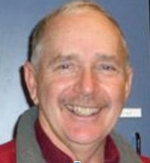 Dean graduated from Oregon State University with a degree in Horticulture, with an emphasis in soils and plant pathology. Dean has worked on habitat restoration for Lake Oswego & Astoria Country Clubs. In his leisure time during the winter months, Dean likes to construct and design either stained glass windows or tiffany lamps. During the summer months he enjoys the challenge of capturing up-close wildlife interactions on film while exploring Oregon's scenic wild areas.
Dean graduated from Oregon State University with a degree in Horticulture, with an emphasis in soils and plant pathology. Dean has worked on habitat restoration for Lake Oswego & Astoria Country Clubs. In his leisure time during the winter months, Dean likes to construct and design either stained glass windows or tiffany lamps. During the summer months he enjoys the challenge of capturing up-close wildlife interactions on film while exploring Oregon's scenic wild areas.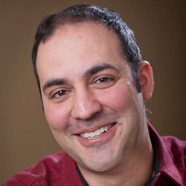 Jonathan Bucci has been Collection Curator at the Hallie Ford Museum of Art since 2006. Prior to that he was Assistant Director and Curator of Collections at the American University Museum in Washington DC. He earned an MFA in Painting from American University. Recent curatorial projects include Stilleven: Contemporary Still Life (2015) and Whiting Tennis: My Side of the Mountain (2014). He is currently working on an exhibition of self-taught artist Russell Childers which will open in July 2016.
Jonathan Bucci has been Collection Curator at the Hallie Ford Museum of Art since 2006. Prior to that he was Assistant Director and Curator of Collections at the American University Museum in Washington DC. He earned an MFA in Painting from American University. Recent curatorial projects include Stilleven: Contemporary Still Life (2015) and Whiting Tennis: My Side of the Mountain (2014). He is currently working on an exhibition of self-taught artist Russell Childers which will open in July 2016. 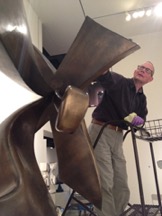 Tom Fuller has a background in archeology and a graduate degree from the Institute of Archeology in London. He has been working as an objects conservator in private practice since 1977. He considers himself of generalist in objects conservation but has extensive experience with ethnographic and historic objects. In addition to HFMA, his is currently working with Benton County Historical Museum of a full taxidermy Moose mount and the Phoebe Hearst Museum at UC Berkeley on an Egyptian boat model. Other past clients inlcude the UPenn Museum and the Oakland Museum of California among many others.
Tom Fuller has a background in archeology and a graduate degree from the Institute of Archeology in London. He has been working as an objects conservator in private practice since 1977. He considers himself of generalist in objects conservation but has extensive experience with ethnographic and historic objects. In addition to HFMA, his is currently working with Benton County Historical Museum of a full taxidermy Moose mount and the Phoebe Hearst Museum at UC Berkeley on an Egyptian boat model. Other past clients inlcude the UPenn Museum and the Oakland Museum of California among many others.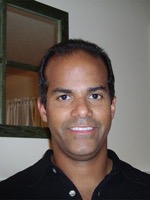 Dwaine Plaza is the Associate Dean in the College of Liberal Arts at Oregon State University. He is a Professor of Sociology in the School of Public Policy. He has been at Oregon State University for eighteen years and teaches a wide slate of classes both at the undergraduate and graduate levels. His teaching includes: Race and Ethnic Relations, Globalization, Social Justice, Applied Research Methods, International study abroad, Qualitative and Quantitative Research Methods. He has written extensively on the topic of Caribbean migration within the international diaspora. His publications focus on: return migration; remittance practices among Caribbeans; hybridity and segmented assimilation among second generation Caribbeans; migration and settlement experiences of Caribbeans; new internet communication technology (Skype, Facebook and Email) as transnational bridges for immigrants living in the Diaspora; Canadian immigration policy and its influence on flows of Caribbean people; sexuality and identity issues among the second generation, food and popular culture among Caribbeans, and elderly Caribbeans living in Great Britain and Canada. His current research looks at STEM issues as they apply to disadvantaged populations that includes people of color and women.
Dwaine Plaza is the Associate Dean in the College of Liberal Arts at Oregon State University. He is a Professor of Sociology in the School of Public Policy. He has been at Oregon State University for eighteen years and teaches a wide slate of classes both at the undergraduate and graduate levels. His teaching includes: Race and Ethnic Relations, Globalization, Social Justice, Applied Research Methods, International study abroad, Qualitative and Quantitative Research Methods. He has written extensively on the topic of Caribbean migration within the international diaspora. His publications focus on: return migration; remittance practices among Caribbeans; hybridity and segmented assimilation among second generation Caribbeans; migration and settlement experiences of Caribbeans; new internet communication technology (Skype, Facebook and Email) as transnational bridges for immigrants living in the Diaspora; Canadian immigration policy and its influence on flows of Caribbean people; sexuality and identity issues among the second generation, food and popular culture among Caribbeans, and elderly Caribbeans living in Great Britain and Canada. His current research looks at STEM issues as they apply to disadvantaged populations that includes people of color and women.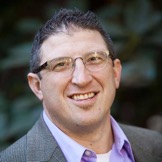
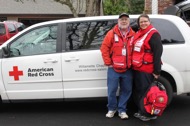 Brian Fenderson is a retired teacher from the Cascade School District and has been a volunteer with the Red Cross for a little over five years. He has given presentations at state, regional, and national levels on a number of issues including terrorism and the global landmine crisis. While a teacher, he was awarded Fulbright Seminars Abroad to China and South Africa and was selected for other programs to South Korea, Nepal and Turkey. He works part-time for the Oregon House of Representatives as coordinator of the Honorary Page Program. He lives in Salem with wife, Ann, and has two children here in the Salem area.
Brian Fenderson is a retired teacher from the Cascade School District and has been a volunteer with the Red Cross for a little over five years. He has given presentations at state, regional, and national levels on a number of issues including terrorism and the global landmine crisis. While a teacher, he was awarded Fulbright Seminars Abroad to China and South Africa and was selected for other programs to South Korea, Nepal and Turkey. He works part-time for the Oregon House of Representatives as coordinator of the Honorary Page Program. He lives in Salem with wife, Ann, and has two children here in the Salem area.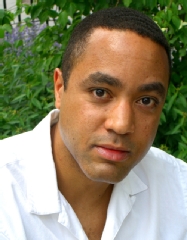 There have been many movements to revive dying languages. We explore the reasons that success is so elusive. For one, people often see their unwritten native language as less "legitimate" than written ones used in popular media.
There have been many movements to revive dying languages. We explore the reasons that success is so elusive. For one, people often see their unwritten native language as less "legitimate" than written ones used in popular media.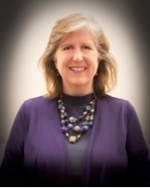 Micky Logan has served as the Legal Affairs Director at the Oregon State Hospital since October, 2011. Before then, she was an Assistant Attorney General at the Oregon Department of Justice. During her 20 years at the Oregon Department of Justice, she clerked in the Appellate Division for 2 years, worked as an Honors Attorney for 2 years, served on the DOJ Ethics Committee for 10 years, and represented the Department of Human Services and the Oregon Health Authority as a General Counsel attorney for 18 years. Ms. Logan served on the Executive Committee of the Oregon State Bar Disability Law Section for 9 years, and was a member of the Oregon State Bar House of Delegates for 3 years. She was the Chairperson of the Legal Division of the National Association of Mental Health Program Directors for 3 years. Ms. Logan received her Bachelor of Arts degree from the University of Michigan, and her law degree from Lewis & Clark Law School.
Micky Logan has served as the Legal Affairs Director at the Oregon State Hospital since October, 2011. Before then, she was an Assistant Attorney General at the Oregon Department of Justice. During her 20 years at the Oregon Department of Justice, she clerked in the Appellate Division for 2 years, worked as an Honors Attorney for 2 years, served on the DOJ Ethics Committee for 10 years, and represented the Department of Human Services and the Oregon Health Authority as a General Counsel attorney for 18 years. Ms. Logan served on the Executive Committee of the Oregon State Bar Disability Law Section for 9 years, and was a member of the Oregon State Bar House of Delegates for 3 years. She was the Chairperson of the Legal Division of the National Association of Mental Health Program Directors for 3 years. Ms. Logan received her Bachelor of Arts degree from the University of Michigan, and her law degree from Lewis & Clark Law School.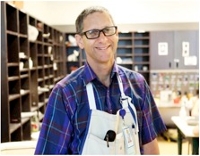 Guy Forson has served as a Recreation Therapist (RT) for Oregon State Hospital (OSH) since 1988. During this time he has worked on what would be considered the maximum-security units for an accumulative time of 10 years. He spent one year working with the acute mall, specifically focusing on patients who were hard to incorporate into the standard treatment mall system due to violence and other acting out behaviors. Guy worked with the child and adolescent program for 6 years here at OSH until it was disbanded and the acute women's unit for 4 years. Guy worked with the OSH community reintegration team with patients who were ready to be placed, taking them to see possible future group home living situations. Guy has worked as a treatment mall group leader for the remainder of his 27 years at the hospital. Mr. Forson has a Bachelor’s degree in psychology with emphasis in biofeedback relaxation, and pain control and a Master’s degree in therapeutic recreation both from Brigham Young University, Utah. He is currently nationally certified as a CTRS- Certified Therapeutic Recreation Specialist.
Guy Forson has served as a Recreation Therapist (RT) for Oregon State Hospital (OSH) since 1988. During this time he has worked on what would be considered the maximum-security units for an accumulative time of 10 years. He spent one year working with the acute mall, specifically focusing on patients who were hard to incorporate into the standard treatment mall system due to violence and other acting out behaviors. Guy worked with the child and adolescent program for 6 years here at OSH until it was disbanded and the acute women's unit for 4 years. Guy worked with the OSH community reintegration team with patients who were ready to be placed, taking them to see possible future group home living situations. Guy has worked as a treatment mall group leader for the remainder of his 27 years at the hospital. Mr. Forson has a Bachelor’s degree in psychology with emphasis in biofeedback relaxation, and pain control and a Master’s degree in therapeutic recreation both from Brigham Young University, Utah. He is currently nationally certified as a CTRS- Certified Therapeutic Recreation Specialist.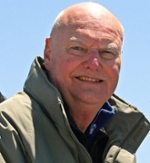 The Big Cats of the World is a presentation by ICL member Lester Reed comprising photographs, taken by Lester, of Lions, Bengal Tigers, Jaguars, Leopards and Cheetahs in their natural environment. Lester will provide some interesting facts concerning these magnificent but endangered animals in his talk.
The Big Cats of the World is a presentation by ICL member Lester Reed comprising photographs, taken by Lester, of Lions, Bengal Tigers, Jaguars, Leopards and Cheetahs in their natural environment. Lester will provide some interesting facts concerning these magnificent but endangered animals in his talk.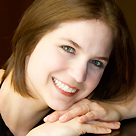 Crystal Zimmerman grew up in Wichita, Kansas, where she earned a dual Bachelor of Music degree in Piano Performance and Piano Pedagogy from Wichita State University. She continued her studies at the University of Oregon, where she earned a dual Master of Music degree in Piano Performance and Piano Pedagogy. She completed her Doctor of Musical Arts degree at the University of Oregon, with an emphasis in Piano Performance and a supporting area of Musicology.
Crystal Zimmerman grew up in Wichita, Kansas, where she earned a dual Bachelor of Music degree in Piano Performance and Piano Pedagogy from Wichita State University. She continued her studies at the University of Oregon, where she earned a dual Master of Music degree in Piano Performance and Piano Pedagogy. She completed her Doctor of Musical Arts degree at the University of Oregon, with an emphasis in Piano Performance and a supporting area of Musicology. On March 17th from 10:30-12:30 and from 1:30-3:30 (see below) in Kaneko Auditorium the ICL play committee presents three radio plays originally performed in the 1940s and adapted by Kasia Quillinan and Franca Hernandez for the stage. During the morning session the ICL play committee will present Adventures of the Thin Man: The Case of the All-American Menace and the thriller The Thing on the Fourble Board. During the afternoon session the committee will present another Adventures of the Thin Man: The Case of the Goofy Groom.
On March 17th from 10:30-12:30 and from 1:30-3:30 (see below) in Kaneko Auditorium the ICL play committee presents three radio plays originally performed in the 1940s and adapted by Kasia Quillinan and Franca Hernandez for the stage. During the morning session the ICL play committee will present Adventures of the Thin Man: The Case of the All-American Menace and the thriller The Thing on the Fourble Board. During the afternoon session the committee will present another Adventures of the Thin Man: The Case of the Goofy Groom. Continuing with the ICL Player's Radio Plays presentation: Adventures of the Thin Man: The Case of the Goofy Groom.
Continuing with the ICL Player's Radio Plays presentation: Adventures of the Thin Man: The Case of the Goofy Groom.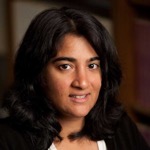 Raechelle Mascarenhas is Associate Professor of Economics and Chair, Department of Economics at WU.
Raechelle Mascarenhas is Associate Professor of Economics and Chair, Department of Economics at WU.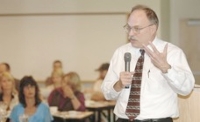 Paul Warner is the Legislative Revenue Officer for the State of Oregon. The Legislative Revenue Office is a permanent, nonpartisan legislative service agency. It provides research and analysis on tax policy and finance issues for legislators, legislative committees and the public. Paul was appointed Legislative Revenue Officer in January of 1999.
Paul Warner is the Legislative Revenue Officer for the State of Oregon. The Legislative Revenue Office is a permanent, nonpartisan legislative service agency. It provides research and analysis on tax policy and finance issues for legislators, legislative committees and the public. Paul was appointed Legislative Revenue Officer in January of 1999.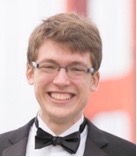 This presentation will focus on the composition process of a set of three art songs, detailing how the texts were treated and the ways in which they dictated the content of the music.
This presentation will focus on the composition process of a set of three art songs, detailing how the texts were treated and the ways in which they dictated the content of the music. I compared different styles of Later Neolithic pottery found throughout the Orkney Islands to understand the cultural or chronological significance of the Later Neolithic pottery found at the Ness of Brodgar.
I compared different styles of Later Neolithic pottery found throughout the Orkney Islands to understand the cultural or chronological significance of the Later Neolithic pottery found at the Ness of Brodgar.